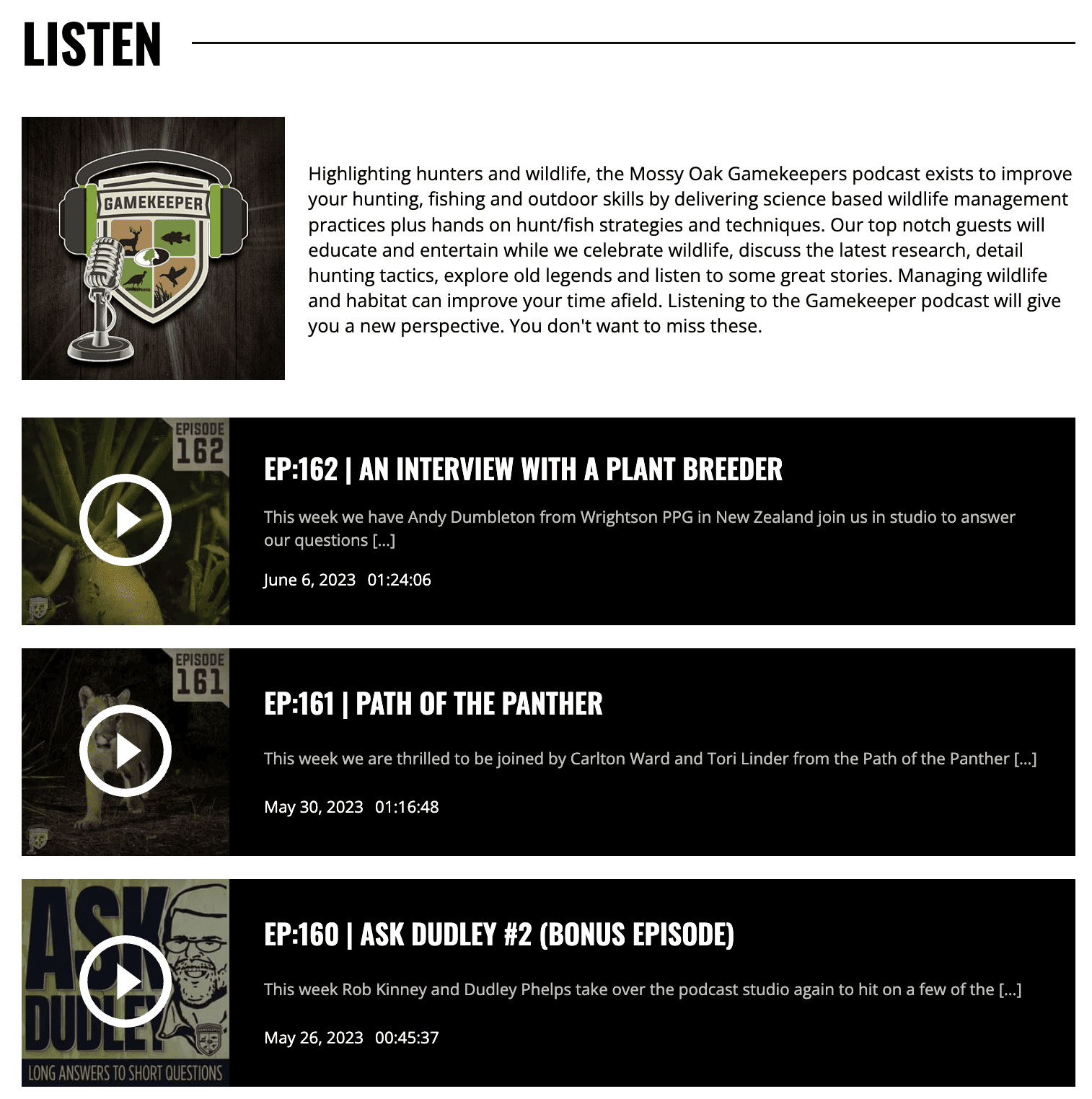How to Optimize Podcasts for Your Blog
Some of our land brokerages and brokers have started a podcast or are considering starting one. A podcast is an audio program usually based on a specific theme you can listen to on most mobile devices. This has become popular, where podcasters can build an audience of subscribers that listen to podcasts. Land brokers have recognized this as an opportunity to communicate their insights, expertise, or guidance to listeners.
In a simple sense, a podcast is considered content, but in the audio form. This is the same as producing a video, writing an article, or creating an eBook. With the content creation of a podcast also comes the opportunity to optimize your podcasts to rank on Google, interlink with your other content and social profiles, and create a new web property for you or your brokerage.
We created an essential podcast optimization checklist for a basic starting point to help get you started.
Podcast Checklist & Guidance

Platform (Channel) Profile – there are a number of podcast platforms, such as Apple Podcasts, Spotify, Google Podcasts, and more. Each platform can be optimized with your podcast title, description, categories, and links. Take the time to ensure you fully use the settings available within each platform.
In some cases, you may use a podcast hosting site (Podbean, Buzzsprout, Captivate, etc.) to syndicate your podcast to multiple podcast platforms. These hosting sites oftentimes will publish your profile information to the podcast platforms. Ensure your podcast site profile is purposefully optimized.
Channel Description – A podcast within a platform is often called a “channel.” Take the time to write a quality podcast description, weaving in broad keyword phrases for your business and the area you know people are searching for. A little keyword research and ChatGPT can go a long way.
Target Keyword Phrase – Each podcast episode should have a keyword phrase to target. Use free keyword research tools to find the right target. If done correctly, a few minutes of keyword research will pay dividends after publishing a month’s content on your podcast channel.
Targeting the highest volume phrase is only sometimes the answer, though. Focus on phrases that match exactly what your episode is about, even if it has a lower search volume. Sometimes the highest volume search phrase can be very competitive, and you may never rank for those phrases.
In addition to ranking for general phrases, as a podcaster, you might interview guests on your channel that may have public recognition. Do keyword research on this individual’s name and determine if it is worth targeting or their name + a related phrase.
Finally, avoid target phrases already targeted on other episodes within your channel.
Free Keyword Research Tools:
- Ahrefs Keyword Generator – https://ahrefs.com/keyword-generator
- Ubersuggest – https://neilpatel.com/ubersuggest/
- Google Keyword Planner – https://ads.google.com/home/tools/keyword-planner/
- Google Trends – https://trends.google.com/trends/
Target Phrase in the Episode Title – Include the keyword phrase within your podcast title. Do not waste characters in your podcast title with prefixes or suffixes of the episode number. Example: “Episode 132 – How to Negotiate when Buying Farmland”
Episode Description – Take the time to write a well-crafted description for each episode. First, it’s beneficial to the visitor and the search engines. We recommend writing a minimum of 200-word episode description. The more informative information, the better, though.
Target Phrase in the Episode Description – Use your target phrase in the first paragraph. It is even better to use it within the first 25 words of the article.
Target Phrase Density – Do not overuse the target phrase within the episode description. These descriptions are usually about 200 words so you should only use them 1-2 times at most.
External Links – At the end of each podcast episode description, add labels and links to sites related to your brokerage, content within the podcast, or guests on the episode.

External Links Ideas:
- Each social profile for your brokerage
- Your brokerage website
- Sponsors of the channel and/or episode
- Products or services mentioned in the episode
- Episode guest(s) website or social profile(s)
- Your agent’s profile webpage on the brokerage website
Syndicate on Social – after your episode is fit and published, it is a good next step to post it on your social profiles, where applicable, using the episode URL from your primary podcast platform (i.e., Spotify, Apple Podcasts). Example social sites: Google Business Profile, Facebook, LinkedIn, Twitter, etc
Podcast Episodes as Blog Articles – Posting your episodes as blog articles to your website can be a good idea. Repurpose the episode title, description, and links into the blog article. We recommend using the embed code from your primary podcast platform for website visitors to be able to listen to the episode within the blog article.
Conclusion
Creating high-quality content for your target audience sets a podcast channel and its episodes up for success. Set a good foundation for each episode to succeed by putting in the research time up front to talk and write about topics that matter to your audience, craft a well-planned episode with information listeners can put to use or is highly informative, and spend the time to follow our optimization checklist to complete the episode. Keep it simple. You’ll be happy with the results.
